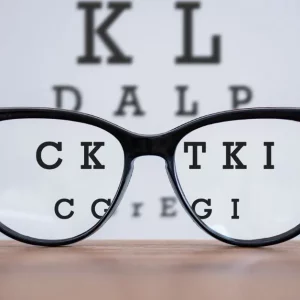Weight loss after brain injury can interfere with your recovery. Too much weight loss can be associated with muscle deterioration. In this article, we consider what may cause you to lose weight after brain injury and how to prevent it.
Causes of Weight Loss After Brain Injury
Many different conditions can contribute to weight loss after brain injury. Some of the most common reasons a patient might lose weight include:
- Swallowing difficulties
- Loss of taste or smell
- Memory or attention problems
- Medications
Brain Injuries can interrupt the neural signals that alert the body when to eat. As a result, a person may not even realize they are hungry.
After a brain injury, the body requires more calories than usual to help the brain heal. If an individual with a brain injury does not consume enough calories, muscle atrophy, as well as other complications, can result.
Therefore, it is crucial to determine the root cause of your weight loss and find ways to counter it.
Treating the Causes of Weight Loss
To overcome weight loss, you will need to consume calorie-rich food. However, this doesn’t mean you should only eat unhealthy foods and drinks, such as milkshakes.
High-calorie foods may seem like an easy fix to the problem. But most of those calories will end up stored as body fat. This will not help you restore muscle mass.
Instead, according to a study by the Pennington Biomedical Research Center, the best way to gain a healthy weight is to consume a diet high in protein. This might be difficult after brain injury, especially if you struggle with swallowing or other conditions that make eating challenging.
The following are a few ways to manage these problems and gain weight after brain injury.
Swallowing Exercises
Weight loss after brain injury can be a result of dysphagia after brain injury. This condition makes it difficult to swallow anything but the softest food.
To improve your swallowing abilities, it’s best to work with a speech therapist. They can teach you exercises to strengthen the muscles that allow you to chew and swallow.
Here is one good exercise a speech therapist might teach you:
- Cut up paper into 5 small pieces and place the pieces on a table.
- Place a cup on the table.
- Put a straw in your mouth, then, while holding the straw above one of the pieces of paper, suck through the straw. The paper should stick to the bottom of the straw.
- Continue sucking on the straw, and move the paper into the cup.
- Repeat until all the pieces of paper are in the cup.
This exercise strengthens your cheeks and tongue. There are many more exercises a speech-language pathologist can teach you and tailor to your needs. So, ask your physician to prescribe speech therapy if you notice any difficulty with eating.
Eat Small Meals
It is common for brain injury survivors to have trouble eating three meals per day. This could be because the injury damaged their sense of taste and smell. Sometimes, the brain can no longer detect hunger, or because of attention and memory deficits meals are skipped.
However, to prevent weight loss after brain injury, many patients find it easier to meet their calorie needs if they break their big meals into smaller snacks throughout the day.
Some healthy snacks that are high in protein and other crucial nutrients include:
- Greek yogurt
- Almonds or walnuts
- Tuna
- Hard-boiled eggs
- Edamame
Even if you do not feel hungry, it’s important to eat something every few hours. Consuming a good brain injury diet can help fuel your recovery and prevent weight loss after brain injury.
Also, try not to drink water right before meals. Fluids can fill your stomach and suppress your appetite.
Set Alarms
If you struggle with memory problems that cause you to forget to eat, it helps to set alarms for each meal. Keep a small bag full of healthy snacks, and set an alarm on your watch or phone for every two hours. That way, wherever you are, you can always have something to eat.
In addition, the body does best when it is on a routine, so make sure you try to eat at the same time every day.
Try Smoothies
Smoothies can be a great way to counter weight loss after brain injury, especially if chewing and swallowing are difficult.
Mix ingredients rich in protein and calories, such as:
- Bananas
- Yogurt
- Milk
- Avocados
- Mangoes
You can also mix in protein powders if you have lost a lot of muscle mass.
Add Supplements
Sometimes a deficiency in certain nutrients can suppress a person’s appetite.
The best supplements to help you boost your appetite after brain injury include:
- Zinc. Too little zinc in the diet can cause taste disturbances and appetite decrease that can lead to weight loss.
- Fish oil. Not only can fish oil boost brain function, but it can also increase appetite.
- Echinacea. Echinacea is an herb that contains compounds called alkylamines, which stimulate your appetite.
If you still struggle to eat enough, you might try other vitamins for brain injury to ensure you get the nutrients you need.
Understanding Weight Loss After Brain Injury
Weight loss can occur after a brain injury for various reasons. It’s important to find out the root of the problem as soon as possible to prevent loss of muscle mass and other problems.
To gain weight, try to consume healthy, high-protein snacks throughout the day, even if you don’t feel hungry. The more fuel you can give your brain and body, the faster your recovery will progress.










